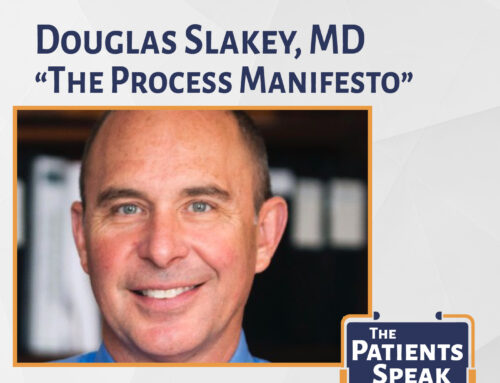Market Pulse:
Is A.I. “All In” for the best patient experience in clinical research?
Is A.I. “All In” for the best patient experience in clinical research?
January 06, 2023 — By Cyndi Bloom

The Market Pulse delivers the latest market trends and issues of interest to those who sponsor, develop, and run clinical trials. Unlike your typical market insights report, Market Pulse reviews the issues and trends from the person/patient/participant standpoint.
This issue of the Market Pulse looks at some applications of artificial intelligence (AI) and their impact on participants in clinical research.
Artificial intelligence:
Beyond ‘wow factor’ to a participant focus
Beyond ‘wow factor’ to a participant focus
AI is the latest shiny, glittery set of technologies being adopted by the healthcare industry. In fact, in a recent survey by Deloitte, 76% of respondents in the life sciences said they are investing in AI.
AI has compelling use-cases to create efficiencies, reduce costs, and automate steps in the clinical trial process. But it’s on us to check these against participants’ experiences. Do these improvements create friction-points for participants? De-humanize the participants’ care process? Increase participants’ concerns about the privacy of their data?
In a recent survey by Deloitte, 76% of respondents in the life sciences said they are investing in AI.

AI in action: Accurate and speedy
patient identification
How can AI help? Let’s discuss a participant’s experience with AI. The patient is a Latino man in his 50s. Tomás recently had an endoscopy because he’s had persistent diarrhea. He was worried about the time it would take to get his results and being able to find a solution to his symptoms.
It turns out that an AI-based solution, the Constellation Platform, was used to very rapidly scan his (and others’) endoscopy video recordings to pinpoint issues and compare results against specific criteria for a trial. Tomás quickly got the news about a trial that could be a great match for him and his condition. After further rapid online and on-phone qualification, education, and guidance, Tomás knew 1) if the trial was right for him, 2) what to expect, and 3) if he wanted to proceed.
So the bottom line? The whole process of determining Tomás’ condition and finding a path toward a solution was greatly sped up—a day or two instead of weeks or months—saving Tomás time and worry.
The whole process of determining Tomás’ condition and finding a path toward a solution was greatly sped up—a day or two instead of weeks or months—saving Tomás time and worry.
AI also has helped find candidates for cancer trials. The National Cancer Institute sponsored the development of an AI-powered system, called Deep Learning Clinical Trial Matching System (DLCTMS) for finding qualified candidates. It begins by digitizing inclusion and exclusion criteria and associated biomarkers. It takes a look at possible “stucks” when it comes to enrollment and pulls applicable patient data. This data can then be used to take patients through more extensive screening for trials.
The good news? It’s helped more patients get into more life-saving trials more quickly. In the first six months, this technology connected patients to 111+ studies. And it had a success rate of 90%! Since then, it’s very quickly connected qualified patients to another 213 trials.
In both of these examples, AI:
- Speeds up identification of participants who can definitely benefit from participation in a trial
- Engages participants quickly so their wait for answers is days, not weeks or months
- Opens up trials to a broader group of participants—many of whom come from diverse racial and ethnic backgrounds (like Tomás).
Helping patients help themselves
In the previous issue of Market Pulse about DCTs, we talked about the fact that patients don’t always hear about clinical trials from their healthcare providers. So many start their own searches. And many turn to ClinicalTrials.gov. That’s good, right?
Well, a simple query using the key words “prostate cancer” pulls in more than 3,100 studies. Not exactly user friendly for most patients.
That’s where AI can come in. Researchers have developed a tool called DQueST using Natural Language Processing (NLP) to dynamically generate questions. Patients answer these questions to help weed out trials that don’t match their needs and characteristics.
The results? DQueST has helped patients more quickly find clinical trials that meet their needs by narrowing their search in ClinicalTrials.gov. DQueST filters out 60%–80% of initial trials after asking 50 questions.

AI and DCTs: The power of two for a better patient experience
AI also pairs well with decentralized clinical trials. How does this impact the participant experience? A recent article says AI can make important improvements in remote technologies that benefit participants, including:
- Enhancing digital health user interfaces to make them easier for participants to understand and use
- Automating and personalizing the timing of reminders to participants about completing electronic clinical outcome assessments (eCOA) at home. This helps ensure compliance without overloading participants with reminders.
- Advising participants on taking photos as required by the trial to guide participants in improving the lighting, contrast and other aspects of their photos
- Helping a single wearable mobility sensor to do the work of many, so the participant isn’t forced to wear sensors from head to toe.
All of these improvements together make it easier for participants to use technology and increase their comfort level with it. This means more patients can complete their tasks that require technologies and more quickly get to results that provide better outcomes for them.
All of these improvements together make it easier for participants to use technology and increase their comfort level with it.
So, is AI the perfect tool?
Is AI…full of potential…already being used to do great things…growing in use in clinical trials? Yes, yes, and yes. Is AI perfect? Nope.
A few things to be cautious of when deploying AI in healthcare:
- Beware of data breaches that can cause patients to lose confidence or trust in data use and/or security.
- We just said AI is not perfect. So systems based on AI will still need the watchful eye of a human being (medical professional) to determine the validity of data coming out of AI. Algorithmic bias should be considered. An AI model should be developed “on data that reflects diversity, but these data are not always available for all socioeconomic groups, and AI may not produce enough data “to accurately make predictions for underrepresented groups.”
- Incompatibility between various mobile platforms and devices continues to be a real issue for participants, who, for example, may not have the latest and greatest cell phones (or may not have smartphones).
- While amazing things are being done with AI, it’s important not to let technology become a barrier to human interaction with the participant. Empathy and the human-to-human connection are important for making participants feel comfortable and motivated to seek answers to their issues.
AI is not perfect. So systems based on AI will still need the watchful eye of a human being (medical professional) to determine the validity of data coming out of AI.
AI, AI, Oh (what’s next)
This review of AI just barely scratches the surface of participant-centric AI applications in use and in development for clinical trials. As you learn about more of them, consider the following questions:
- How will the technology affect participants? Does it help or hinder them?
- Does the technology broaden potential participants’ access to research? If yes, does this larger pool of participants include more women, racial and ethnic minorities, and those with low incomes?
- Does the technology improve convenience for participants and remove barriers they may come across in their journey to better health?

What did we miss?
We’ve answered many of the questions around AI, but we weren’t able to cover it all. What are other key questions or concerns around AI? Have you heard any unique perspectives we missed? Visit 83bar’s page on LinkedIn to leave your feedback. We look forward to hearing what you have to say.




